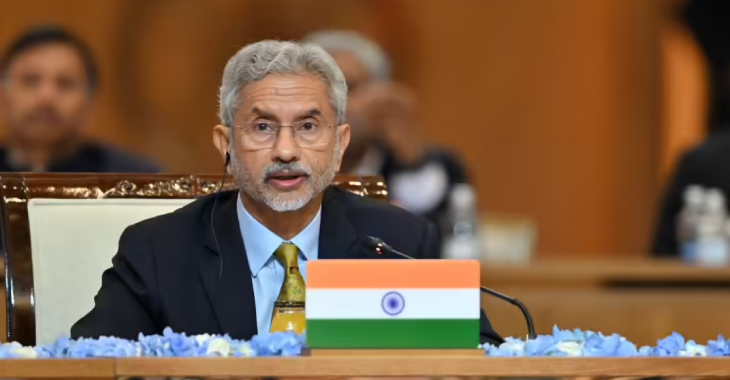Trade patterns and market access are “prominent issues” in the global economic conversation, according to External Affairs Minister (EAM) S Jaishankar, who also emphasized that the world needs cooperative and constructive methods to promote sustainable trade.
“A secure and predictable climate for commerce and investment is what the entire globe is looking for. Economic procedures must be equitable, open, and advantageous to all parties at the same time. Our goal should be to proof it against such shocks when there are several disruptions. This entails developing supply chains that are shorter, more dependable, redundant, and robust. Furthermore, it is imperative that we democratize production and manufacturing and support their expansion across various regions. At the Virtual Summit of BRICS Leaders, the EAM stated that advancements in that area will help the region become self-sufficient and ease fears during uncertain times.
“Market access and trade patterns are currently hot topics in the discussion of the world economy. The world needs cooperative and positive methods to encourage sustainable trade. Complicating transactions and raising barriers won’t help. Linking trade policies to non-trade issues wouldn’t help either. By examining the trade flows between its member states, the BRICS itself can serve as an example. As far as India is concerned, we have been pushing for quick fixes to some of our largest gaps with our BRICS counterparts. We hope that this insight will be included in the conclusions drawn from today’s discussion,” he continued.
The EAM emphasized that the fundamental tenets of an open, egalitarian, transparent, non-discriminatory, inclusive, and rules-based system with special and differential treatment for developing nations form the basis of the global trade system. “India firmly believes that this should be protected and nurtured,” he added.
He said that there is reason for serious concern about the state of the world, citing the effects of the COVID pandemic, the conflicts in Ukraine and West Asia, the unpredictability of trade and financial movements, and catastrophic weather events.
“There is reason to be concerned about the current status of the planet. The terrible effects of the COVID pandemic, significant wars in Ukraine and the Middle East/West Asia, fluctuations in trade and investment flows, extreme weather occurrences, and a noticeable slowdown in the SDG Agenda have all occurred in recent years. The multilateral system seems to be failing the world in the face of these difficulties. It makes sense that the world system as a whole is suffering from the fact that so many important strains are going unchecked. The BRICS are currently debating this cumulative issue,” Jaishankar stated.
“The BRICS members represent a wide variety of societies who are nevertheless profoundly impacted by these developments,” he added. Finding common ground between our separate national policies and acting upon it has been our goal even in the past. Stabilizing the global economy and order is the main priority today. However, it is also important that we focus on ongoing conflicts, not least because they directly affect supply chains and development. Furthermore, a discussion on multilateralism reform would be timely as we approach the next session of the UN General Assembly.
EAM Jaishankar further emphasized that the world is currently looking for a quick solution to its ongoing problems. He claimed that the security of food, energy, and fertilizer has gotten worse in the Global South. He reaffirmed India’s demand for changes of the United Nations Security Council (UNSC) and claimed that there have been shortcomings in several areas of international organizations’ operations in recent years.
“There have been significant shortcomings in several aspects of international organizations’ operations in recent years. Unfortunately, we have observed that the pursuit of common ground has been weakened by deadlocks on important subjects. The need for reformed multilateralism in general and the United Nations and its Security Council in particular has only become more pressing as a result of these experiences. The need for reform has been viewed favorably by the BRICS, and we anticipate that they will band together to become a powerful voice for long-overdue change,” he said.
Brazil, Russia, India, China, South Africa, Saudi Arabia, Egypt, the United Arab Emirates, Ethiopia, Indonesia, and Iran are the eleven nations that make up the BRICS alliance. For nations in the Global South, it acts as a platform for diplomatic and political collaboration in a wide range of fields. Brazil formally took over as the 2025 BRICS chairman on January 1.
Read More
Trump says he is prepared for the next round of penalties against Russia
Today marks the start of Singapore PM Lawrence Wong’s three-day tour to India


